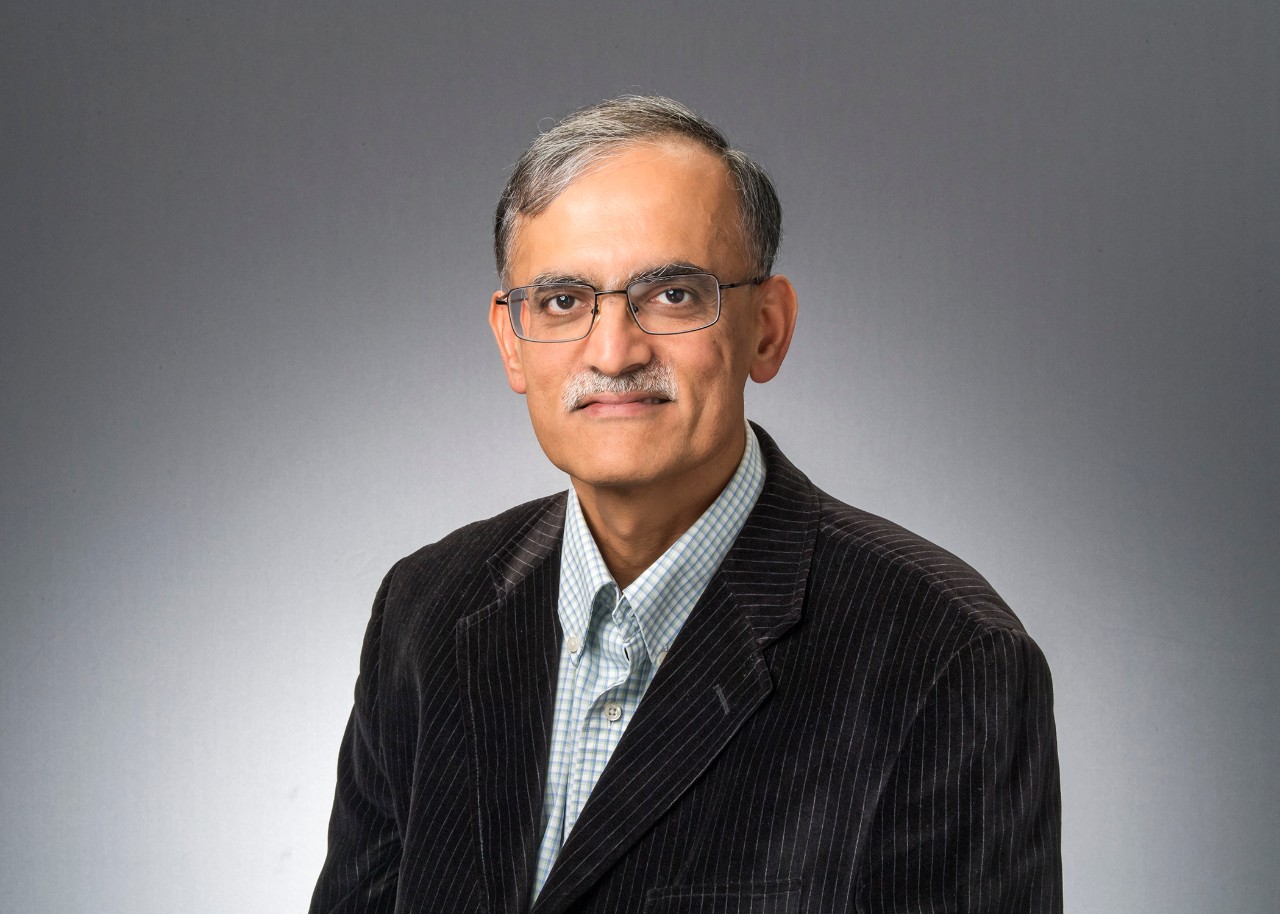Dr. C. Nataraj Receives $1 Million Grant from Office of Naval Research

Dr. C. Nataraj is the current Moritz Endowed Professor of Engineered Systems at Villanova, as well as the director of the Villanova Center for Analytics of Dynamic Systems.
The mission of the U.S. Navy is to protect America at sea. The Office of Naval Research (ONR) is calling on a Villanova professor to improve the safety and performance of its ships and submarines.
C. Nataraj, PhD, professor of Mechanical Engineering, has received a $1 million grant from the ONR to continue developing and improving dynamic systems on Navy ships.
Dynamic systems can involve any part or task of a ship. With this grant, Dr. Nataraj will combine physics and artificial intelligence (AI) along with sensor data to enable the prediction for countless number of unpredictable scenarios ships may face and optimize the functionality of these vessels. Research on this four-and-a-half-year project began in September and will involve graduate and undergraduate Villanova students.
“We’re looking at developing much more accurate ways of modeling complex naval systems,” Dr. Nataraj said. “Predicting how well they behave, what they do and what they can deliver, in order to predict an overall ship or submarine performance, is a vital process.”
Dr. Nataraj says predictions and adjustments play a big role in developing efficient systems, so the length of this ONR grant will allow for more success.
“Setbacks are a reality in any fundamental research, and you can’t always recover from them in six months,” he said. “Having a grant for a longer period of time enables you to provide a solution to a long-term project.”
Dr. Nataraj is the current Moritz Endowed Professor of Engineered Systems at Villanova, as well as the director of the Villanova Center for Analytics of Dynamic Systems (VCADS). He has received more than $14 million in funding over the course of his career, and this ONR grant is among the single largest research awards.
“It does wonders to your self-confidence, knowing you’re on the right track,” he said. “It makes you feel good, it makes the students feel good—everybody is more energized to do the work.”
